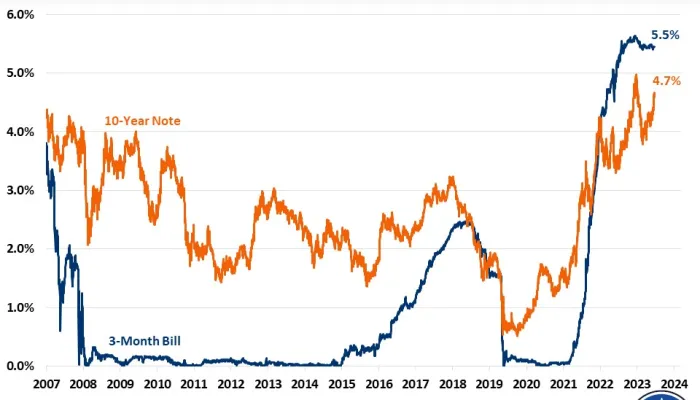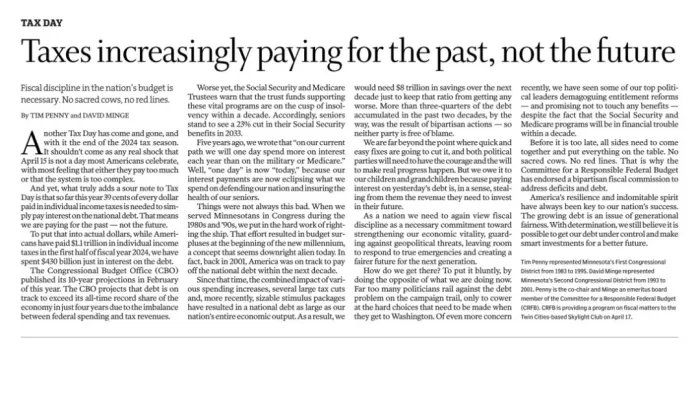CRFB Reacts to House Budget Resolution
Today, the House Budget Committee released its draft of the Fiscal Year (FY) 2024 budget resolution.
The budget resolution proposes to bring the federal budget into balance by reducing baseline deficits by $14.4 trillion over ten years. This deficit reduction would come from a combination of spending cuts – some of which are specific and others that are unspecified – and rosy economic assumptions. The budget also calls for a bipartisan commission to address the unsustainable growth of the national debt.
The document represents the first budget resolution to be proposed and considered by the House Budget Committee since FY 2019. The Senate Budget Committee has not proposed and considered a budget resolution since FY 2020, including their failure to release one this year.
The following is a statement from Maya MacGuineas, president of the Committee for a Responsible Federal Budget:
Finally, we have an actual budget. We applaud Chairman Arrington for putting forward this plan, after more than five years of silence from the House Budget Committee. The central component of governing is budgeting, and the first step is to put a budget on the table. The norm has become to skip the central duty of the Budget Committee to avoid facing the difficult trade-offs, and it is welcome news to see the House Budget Committee break this norm. Moreover, the focus on reducing the national debt is welcome at a time when so many lawmakers continue to increase it. Still, realistically, the plan is too little – or sometimes too much – and too late.
There is a lot to like about this budget. The budget rightly focuses on lowering deficits and slowing debt growth. It calls for a number of thoughtful policy reforms – for example, reforms to Medicare like equalizing payments regardless of the site-of-care. And it suggests a bipartisan commission to address the long-term fiscal situation – which is a great idea that policymakers should adopt immediately. This commission is needed sooner rather than later to address the looming insolvency of Social Security and Medicare and tame the growth of the national debt.
But in many important ways, this budget lacks seriousness. This budget is nearly six months late and will do little to inform this year’s budget process in light of the Fiscal Responsibility Act. Meanwhile, the fiscal goal of reaching a balanced budget in ten years is completely unachievable, especially from a budget that lacks substantial savings from the largest spending programs or the tax code.
The budget’s economic assumptions are fantastical and relied upon to get a large part of the way to balance. These heroic assumptions reflect how difficult it is to make real fiscal progress when so many parts of the budget are off the table. The budget also fails to say much about how it will pay for expensive tax cut extensions, and many of its proposed spending cuts are unspecified, unrealistic, or both.
We are very pleased Chairman Arrington has put forward a budget focused on debt reduction and hope it will lead the rest of Congress to take the aim of reducing deficits more seriously. The Senate has yet to even discuss proposing its own budget and should have done so months ago. But this budget falls far short of the serious effort that will be needed to truly bring deficits under control.
###
For more information, please contact Kim McIntyre, Director of Media Relations, at mcintyre@crfb.org.


